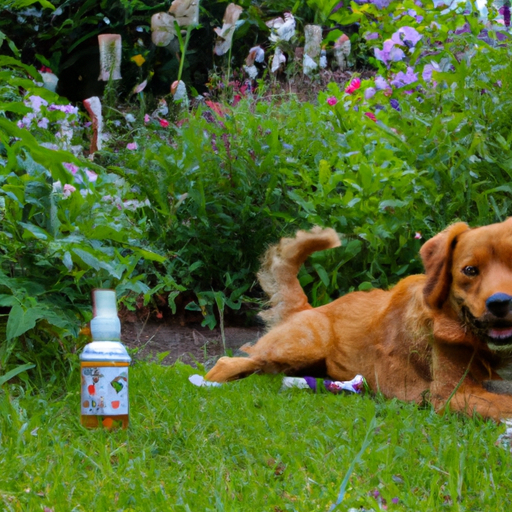As a caregiver, you understand the importance of creating a safe environment for your loved ones. If you’re a pet parent, you’re well aware that your canine companions are curious creatures, sniffing, tasting, and exploring every inch of their surroundings. So when it comes to managing your lawn and garden, it’s vital to use products that are safe for your furry friends. In this article, we’ll dive deep into the world of pet-friendly weed killers.
1. Understanding the Dangers of Traditional Weed Killers
Traditional weed killers, also known as herbicides, often contain chemicals that can be harmful to dogs. Glyphosate, a common ingredient in many weed killers, has been linked to health issues in dogs, such as vomiting, diarrhoea, and in severe cases, seizures.
Common harmful ingredients include:
- Glyphosate
- 2,4-D
- Dicamba
These chemicals can linger on the grass for days after application, posing a risk to your dog who may ingest them by licking their paws or fur.
2. Choosing a Pet-Safe Weed Killer
When shopping for a weed killer, look for products labeled as “pet-safe”. These typically use natural ingredients, such as vinegar or citrus oil, which are less likely to harm your dog if ingested. However, even pet-safe products should be used with caution, as some dogs may have allergic reactions to these ingredients.
Here are a few pet-friendly weed killers:
| Product Name | Active Ingredient | Precautionary Measures |
|---|---|---|
| Green Gobbler Vinegar Weed Killer | Vinegar | Keep pets away during application |
| Doctor Kirchner Natural Weed Killer | Sodium chloride (salt), vinegar, soap | Avoid contact with eyes, skin, clothing |
| Espoma Organic Weed Preventer | Corn gluten meal | Keep out of reach of children |
3. Homemade Weed Killers
If you prefer a DIY approach, there are several homemade weed killer recipes that use common ingredients from your kitchen. Here are a few you can try:
- Vinegar: Pure vinegar can be sprayed directly onto weeds. However, be careful not to spray it on your other plants, as it can kill them as well.
- Salt: Dissolve a cup of salt in a gallon of water and spray on weeds. Salt can deteriorate the soil, so use sparingly.
- Boiling Water: Simply pouring boiling water on weeds can effectively kill them.
4. Prevention is Better than Cure
The best way to keep your yard safe for your dog is to prevent weeds from growing in the first place. Maintaining a healthy lawn, spreading mulch, and regularly pulling out weeds can reduce the need for weed killers.
5. Frequently Asked Questions (FAQs)
Q: How long should I keep my dog off the lawn after using weed killer?
A: As a general rule, you should keep your dog off the lawn until the weed killer has fully dried. This can take anywhere from a few hours to a day.
Q: Are there any weed killers that are 100% safe for dogs?
A: No weed killer is 100% safe. Even those labeled as pet-safe can cause allergic reactions in some dogs. Always use weed killers cautiously.
Q: Can I use weed killer on my vegetable garden?
A: It’s best to avoid using weed killers in areas where you grow food. Instead, try manual weeding or use a safe, homemade solution like vinegar.
Remember, your dog’s safety is paramount. Always read the label of any product you use in your garden, and consider natural or DIY alternatives when possible. Your furry friend will thank you!



